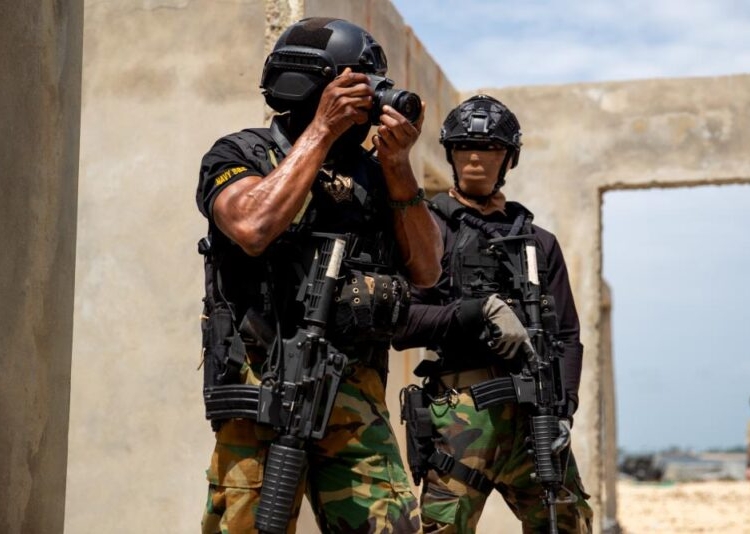The United States’ yearly counter-terrorism training program for African forces began on Sunday in Ivory Coast.
The training program, known as Flintlock, brought together more than 400 soldiers from across West Africa to bolster the skills of forces, some of which are under regular attack by armed groups linked to al Qaeda and Islamic State.
Troops which took part in the drills including servicemen from Ivory Coast, Ghana and Nigeria on the Gulf of Guinea. The area has become a global piracy hotspot in recent years although cases have fallen there since 2021, according to the U.N. Security Council.
“Flintlock will represent the talent of all these countries collectively working to solve the security challenges that pose threats across the region,” stated SOCAF (Special Operations Command Africa) Deputy Commander, Colonel Robert Zyla, during a January 13 combined press conference in Accra. “Violent extremism threatens the stability of not only Africa, but our partners around the globe. A safer and more secure Africa will result in a more prosperous global society and security environment,” he said.
Participants from 29 countries kicked off the command post and field training portion of Exercise Flintlock 2023 with opening ceremonies at four sites across Ghana and Cote d’Ivoire on March 7, 2023.
“Partnership is at the very center of every exercise, meeting and speech that happens as part of Operation Flintlock,” said British High Commissioner to Ghana, Non-Resident Ambassador to Benin, Burkina Faso and Togo, Harriet Thompson. “As nations, we will work together to share expertise, knowledge and best practice to strengthen peace and security across the Sahel and Coastal West Africa because we know that a safer, more secure continent mean a safer, more secure and ultimately prosperous world.”
“Flintlock intends to strengthen the ability of key partner nations in the region to counter violent extremist organizations, collaborate across borders, and provide security for their people, while respecting human rights and building trust with civilian populations. The robust participation of African and international partners reflects a mutual commitment to countering malign activity and violent extremism throughout the Sahel and West Africa region. While regional security is the focus of the exercise, lessons learned at Flintlock will create lasting effects beyond North and West Africa,” Africa Command said.
Flintlock has been hosted in a number of countries since 2005. This year’s iteration aims to continue reinforcing the collective ability of allied and partner nations to address key security challenges.
US forces have historically partnered with Ghana and Cote d’Ivoire through multiple military and civil affairs exchanges. Last year, Cote d’Ivoire hosted Flintlock 2022, with more than 400 participants from ten nations. Burkina Faso hosted the 2019 edition.
COMMANDER OF SPECIAL OPERATIONS COMMAND AFRICA Rear Admiral Jamie Sands noted that “Flintlock provides a critical training opportunity for special operations forces from the U.S., Africa, and international community. Together, we work to exchange best practices to address the security challenges in the Sahel and in coastal West Africa. A safer and more secure Africa will result in a more prosperous global society and security environment.”
“A main focus of Flintlock is information sharing. If we can’t communicate, we can’t work together,” said Admiral Jamie Sands, Commander of the U.S. Special Operations Command Africa, at the opening ceremony.
Admiral Milton Sands, commander of the U.S. Special Operations Command for Africa (SOCAF), said the programme had expanded to help coastal nations in the region cope with maritime threats such as piracy and illegal fishing.


